School districts cite book bans, poor compensation for teacher shortage
More than 70 employers were set up with information about available positions for Iowa State education students at the spring 2020 Teacher Education Career Fair.
Iowa is experiencing a teacher shortage ranging from physical education, to mathematics, to early childhood education. Representatives from schools across Iowa shared their thoughts as to what contributes to the lack of educators in K-12 at the Teacher Education Career Fair Monday.
The career fair allowed students seeking employment, while studying at Iowa State, to network with professionals from school districts in Iowa about the potential jobs available after graduation.
According to Nkrumah H.D. Dixon, the managing director of human resources for the Frisco Independent School District, the event allows prospective educators to see different opportunities within education.
Dixon said the national shortage of teachers is being prompted by the lack of compensation and controversial book bans and challenges in states across the U.S. Dixon said he has a passion about the prioritization of going into the teaching profession.
“I am very passionate about advocating for what it means to be a teacher, all the rights and benefits that teachers need to have [and] what we should be doing as a society to uphold to uplift to encourage to support teachers,” Dixon said.
Dixon said it is important to consider what different schools and districts offer and choose a position that meets the standards of the individual who is going into the teaching profession.
“Anytime you have an opportunity to see what other school districts have to offer, especially as a new educator and especially as someone that is about to either start the profession or you’ve already been a teacher, it’s always best to see what different opportunities exist out there,” Dixon said.
Dixon said this process begins with providing aspiring educators compensation, college educations and supporting the interested individuals. He said he believes teachers should receive more financial compensation than is currently being provided.
“That starts with obviously a high level of respect as needed but then also getting into compensation, getting into how we are paying for their college careers to become teachers [and] paying for the recruitment at the high school level to come into the education profession,” Dixon said.
Dixon said the current shortage of teachers around the U.S. sprouts from the COVID-19 pandemic and the lack of production of new teachers to match the number of teachers retiring.
“Our education programs are just not necessarily producing as many, so we have a lot of retiring, and [we] are not producing as many [teachers], which equals a shortage,” Dixon said.
Dixon said the pandemic put doubt into educators’ minds as to whether or not the job is worth the new multitude of factors teachers must consider for their students.
“All of what we learned coming out of COVID in terms of our standard of mental health, exercise, pacing and all of that is compounded to ‘Do I really want to do this?’ and ‘Is this really worth this salary?’” Dixon said.
Dixon said he is torn between different perspectives regarding book bans that are occurring across the country. He said he believes there are certain levels of when individuals should be exposed to certain literary content. However, when monitoring the content children consume, Dixon said he is unsure if literature should be the top priority considering the wide range of content on the internet.
“I’m not necessarily 100% sure why library books are the focus when it should broaden out to so much more from music to everything,” Dixon said. “I guess when you talk about control, there’s a level of control from a funding standpoint because those are private entities, and then there’s the First Amendment, free speech, but I do think inherently, there is a level of when individuals should be exposed to certain things.”
Mark Davis, the talent acquisition coordinator for the Waukee Community School District, said book bans have massively impacted the teacher shortage and criticized political leaders for the decisions revolving around education.
“Non-educators in the political arena are trying to decide what’s good for kids to be taught after years of letting educators actually educate,” Davis said.
Dixon said he strongly encourages people to look into the teacher education profession and consider the career’s positive impact on others.
Connie Adams, principal of the Oelwein Community School District, said she believes COVID-19 has impacted the shortage of educators nationwide.
“Since COVID, our emphasis was put on our health, and everything else took a backseat,” Adams said. “So, I do think that getting back into that rhythm of school again has been a struggle, and I think family dynamics have also changed because of COVID.”
Adams said teachers are underpaid, adding that every career begins with an education, and behind that education is the educator.
“Every career starts with education, right?” Adams said. “We put emphasis on places, other jobs, and I do feel like they are under-compensated,”
Adams said the teacher career fair is a good opportunity for students to find their match in the school district they want to work in.
Jamie Jacobs, the Oelwein district administrator, said there is a misconception that teachers are compensated year-round, and she believes that educators are under-compensated for their efforts.
“You always hear the people who are like, “They get summers off” and things like that– they don’t,” Jacobs said. “You go by a school, and teachers are sitting in school. They’re working on the curriculum at home; they’re going to conferences in the summer, and the pay is nine-months pay spread out over 12 months, so teachers don’t get the summer off.”
Nate Zittergruen, the human resources director for the Johnston Community School District, said he believes the main reason for the shortage of teachers is compensation.
“Unfortunately, we are limited to what the state gives us for funding,” Zittergruen said. “We would love to give teachers raises, but we only [have] the money that [is given].”
Zittergruen said districts with less enrollment will struggle with financial compensation for educators more than other districts.
“I am in a suburban district where our enrollment is healthy, so we’re very fortunate and we do not have as much of a challenge as some smaller districts with declining enrollment,” Zittergruen said. “Declining enrollment means less money.”
Sydnee Nicholl, a senior majoring in elementary education, said the event gives students an opportunity to get a head start in finding where they want to work after graduation and is a great chance to network with professionals in their field.
“There’s no better opportunity to get our foot in the door and get started on our own adventure, and there’s a lot of schools here that I think are going to be great bets for all of us and our classmates, so it’s just an exciting time for us all,” Nicholl said.
Nicholl said she chose the education career path because of her goal to become the foundation and inspiration for her future students.
“For a lot of us, school is the first foundation and building blocks to essentially the rest of our life, so we wouldn’t be here today if we didn’t start in school at some point,” Nicholl said. “Being able to build those relationships motivated me.”
Nicholl said teachers are the reason people can be successful in all other fields and are essential in helping children learn and grow in civilization.
Claira Sams, a senior majoring in elementary education, said she believes that teachers are a pillar of support for youth and are helpful in many facets of one’s life.
“Teachers are a big building block and foundation for a lot of other aspects in life and are also some of the most compassionate people,” Sams said. “I think you can lean on them for a lot of other things beyond just your education, and they’re going to help you in a lot of different aspects of life.”
Your donation will support the student journalists of the Iowa State Daily. Your contribution will allow us to purchase equipment, send our student journalists to conferences and off-set their cost of living so they can continue to do best-in-the-nation work at the Iowa State Daily.


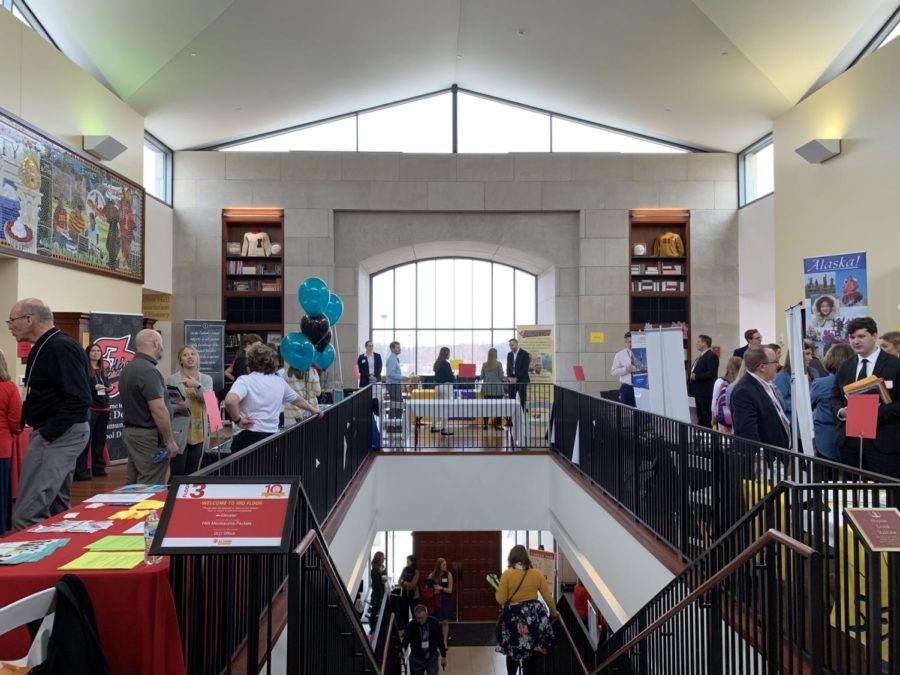
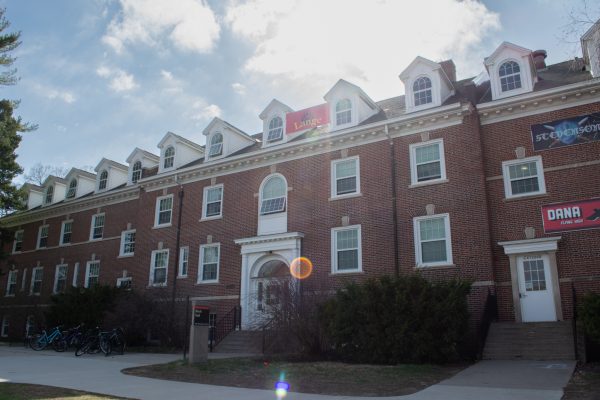
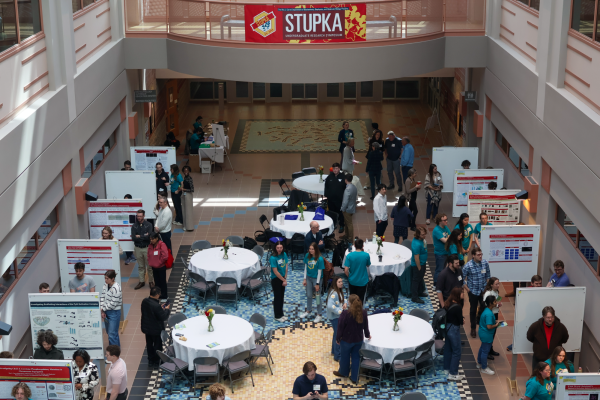


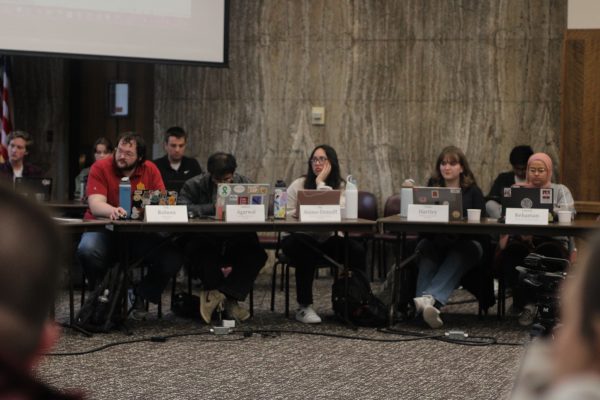

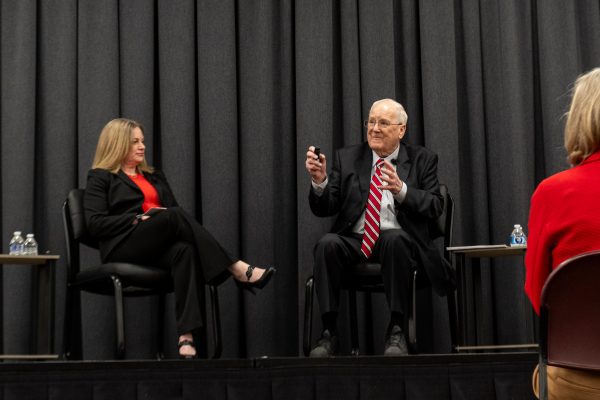
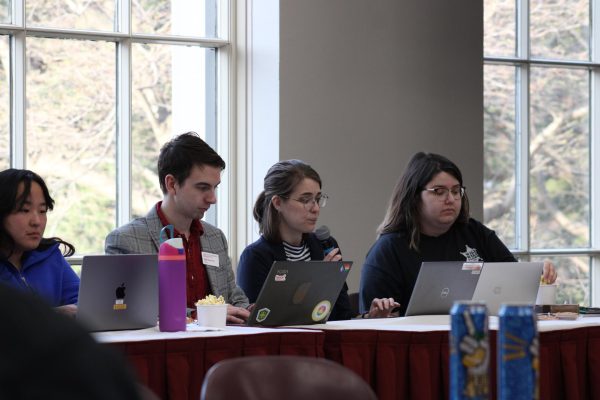
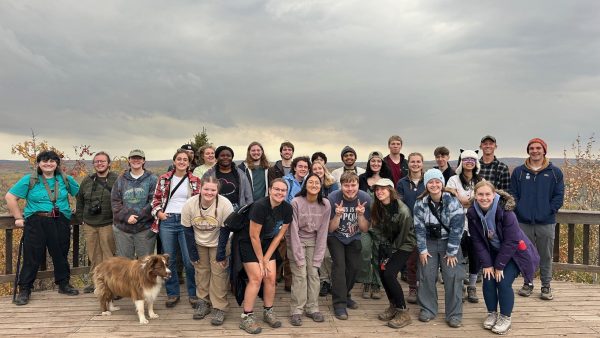
Nuke | Mar 7, 2023 at 8:12 am
This is what happens when the political ruling class is reactionary, short-sighted, and religiously extreme. It’s only a matter of time before OBGYNs are in scarce supply due to restrictions on women’s health.